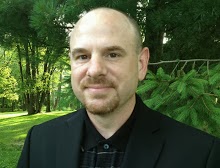Modern Understanding of the Brain Changes Court Rules
As seen on TV
It is dramatic when an eye witness picks someone out of a line up. You see it on TV and you think it works that smoothly in the modern world. For sure, line-ups are still used but maybe this technique will begin to fall out of favor as it is revealed how flimsy eye-witness testimony can be. As our understanding of human functioning increases, backed by scientific research, we are finding that our memories are more fallible than once perceived.
Brains are not computers
 |
| gadgetadda.com |
One such theory of how memory fails us is something called Source Confusion. This happens when we recall something incorrectly and the source of the error is attributed to some other real experience we had that was similar or familiar. Psychologists explain that the brain does not store and recall images and memories like a computer does. It is not that simple. Rather, there are many factors that cause the storage and recall of images and events to be altered. These may include the length of time the event was observed, the lighting, the speed of the event, and its distance from the observer. Also, emotional factors play a part in how brain storage and recollection is carried out. Stress, anger, apathy, etc can alter the event in ones mind.
The eyes have it
Another revealing phenomenon that shows how eye-witness recollection is unreliable is the proliferation of surveillance cameras in public and private settings. A
recent case in Pittsburgh shows how a public library camera exonerated a robbery suspect. While cameras help increase positive identification of suspects, they also are becoming good sources of alibis.
Cameras are good for business
The story also reveals that the robbery victim may have suffered some sort of Source Confusion as he accused a regular patron as being the robber. Maybe if the shop owner had a
camera in his store they would have caught the right guy and he wouldn't have lost a good customer in the process!
A major ruling for the good of both sides
The increasing evidence that points to the inherent weaknesses in eyewitness testimony has caused changes in the way law enforcement and prosecutors must now present their cases. There are now only three states which ban testimony by experts who testify about eyewitness testimony. In May, Pennsylvania joined the majority of states who allow this type of expert testimony which will inform jurors of the limits of eyewitness testimony. The ruling will continue the trend of cases built on science based evidence.
Science fact
Just as DNA evidence has become the gold standard for scientific proof in the courtroom, the next breakthrough may come in the form of validating eyewitness testimony that is true and correct. Right now, that may be the stuff of science fiction but people commonly wearing micro-cameras may not be far off. Google glasses are an early entry into that market and as privacy concerns decrease, they may be more commonplace. Someday, the images they capture may be routinely admitted into evidence. "I told you so”, said George Orwell.


0 comments:
Post a Comment